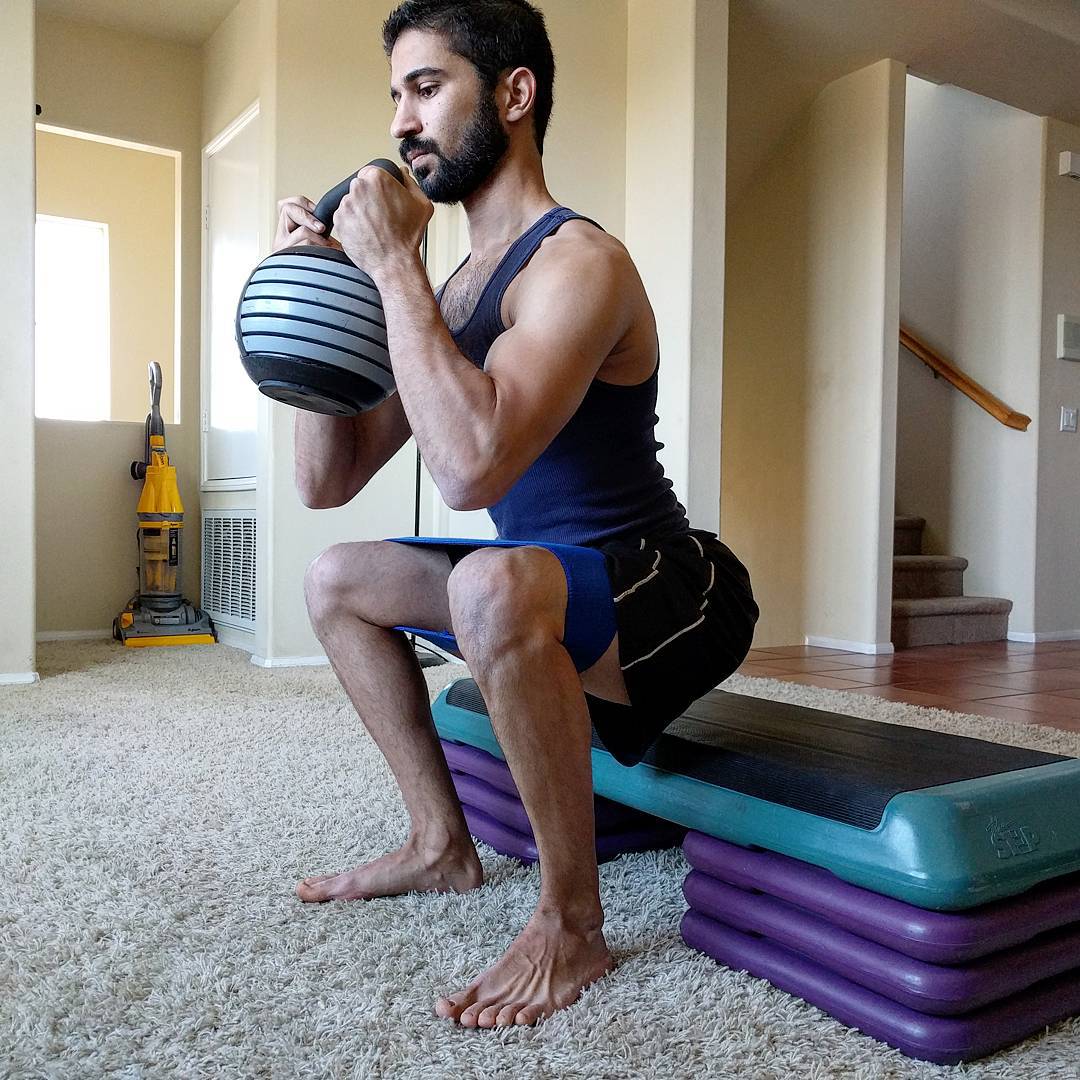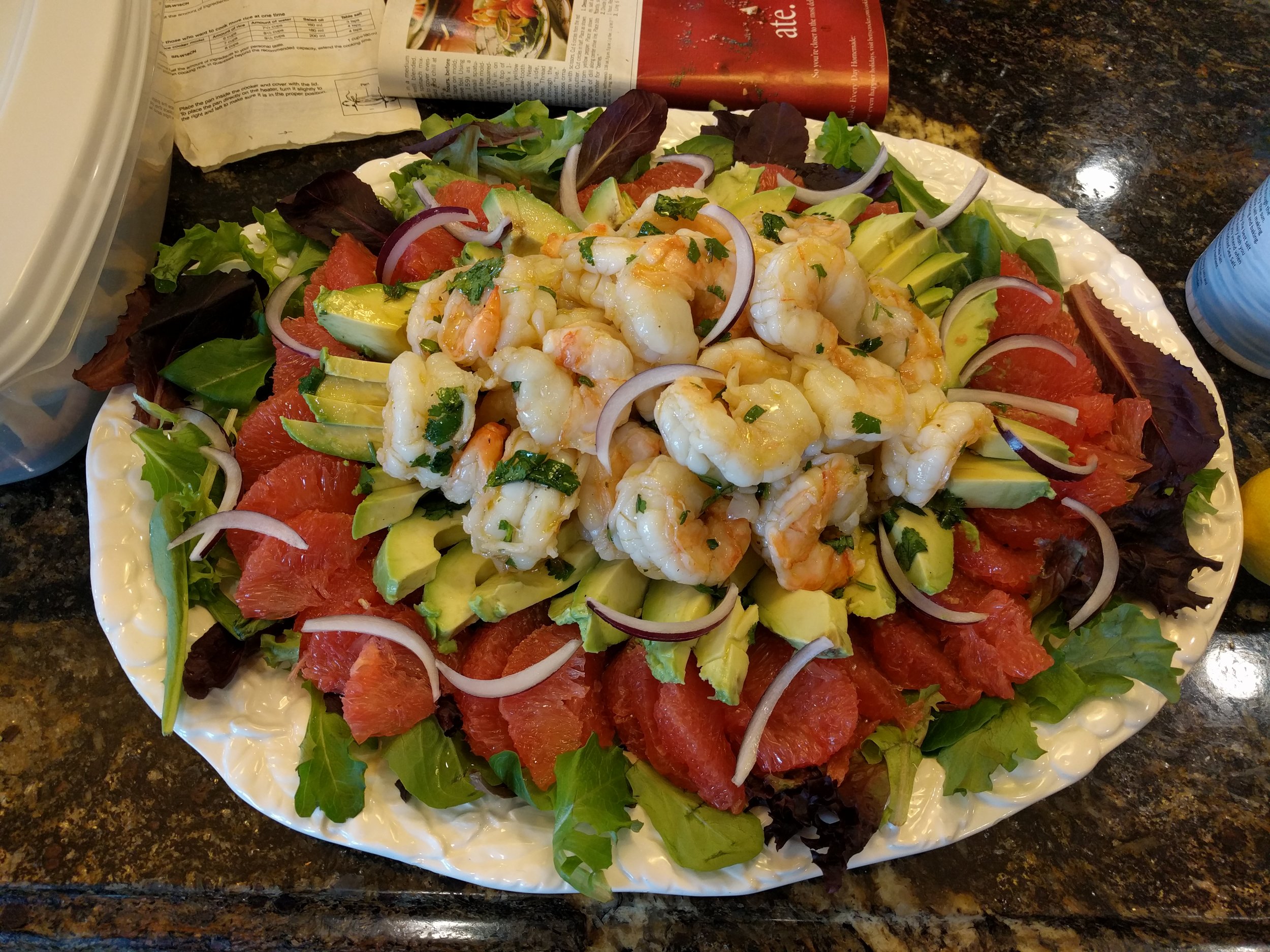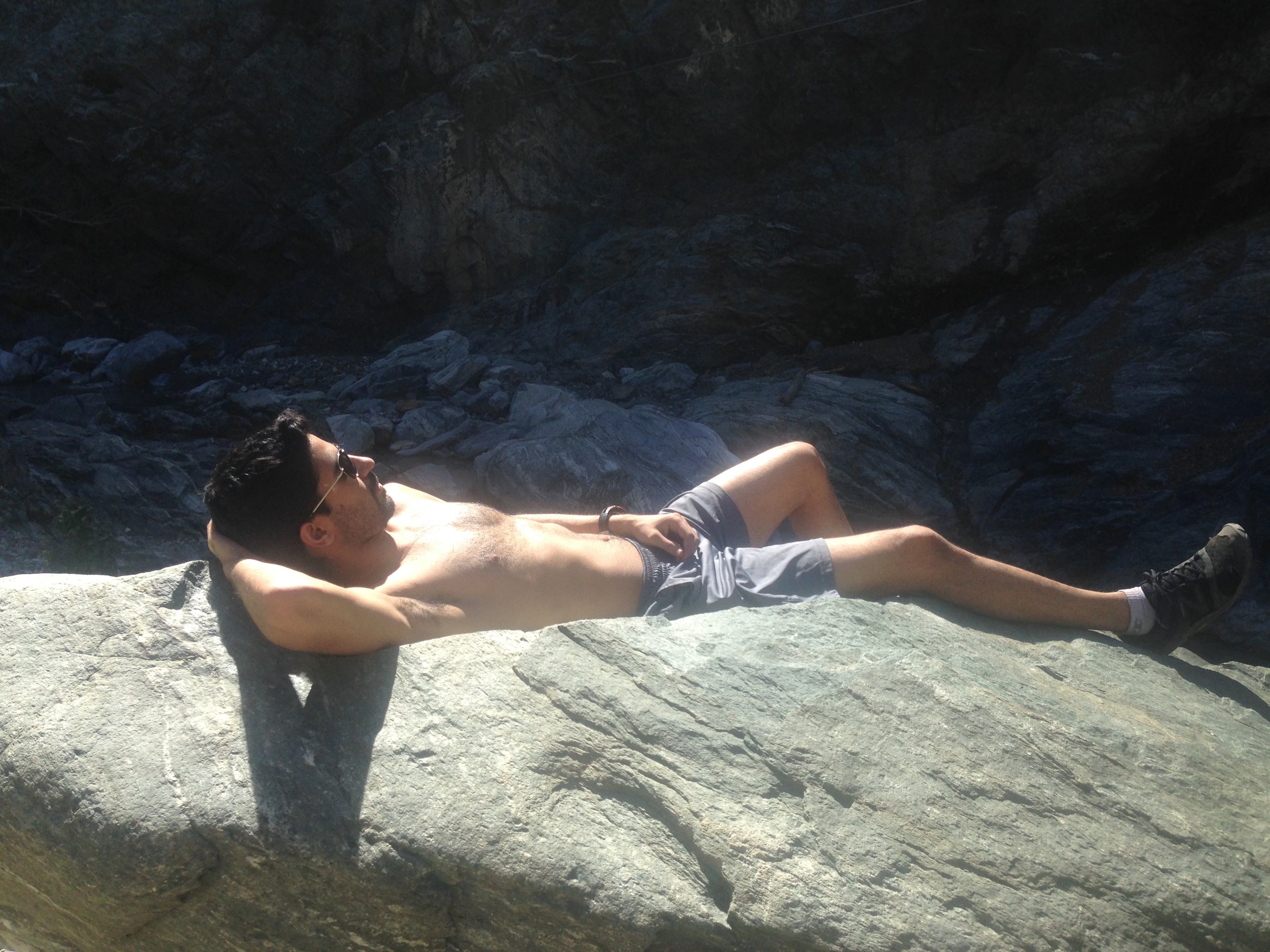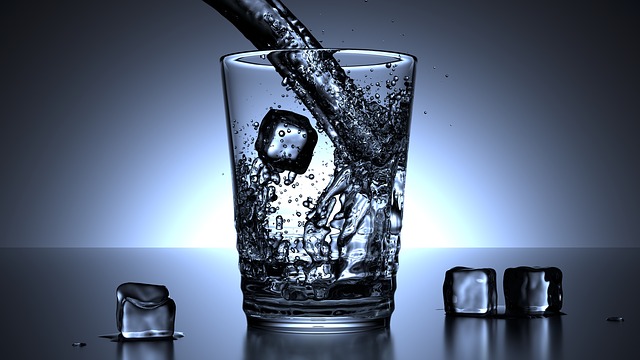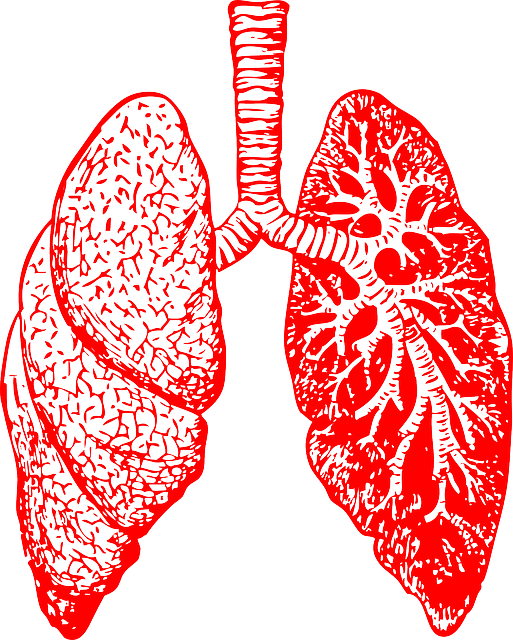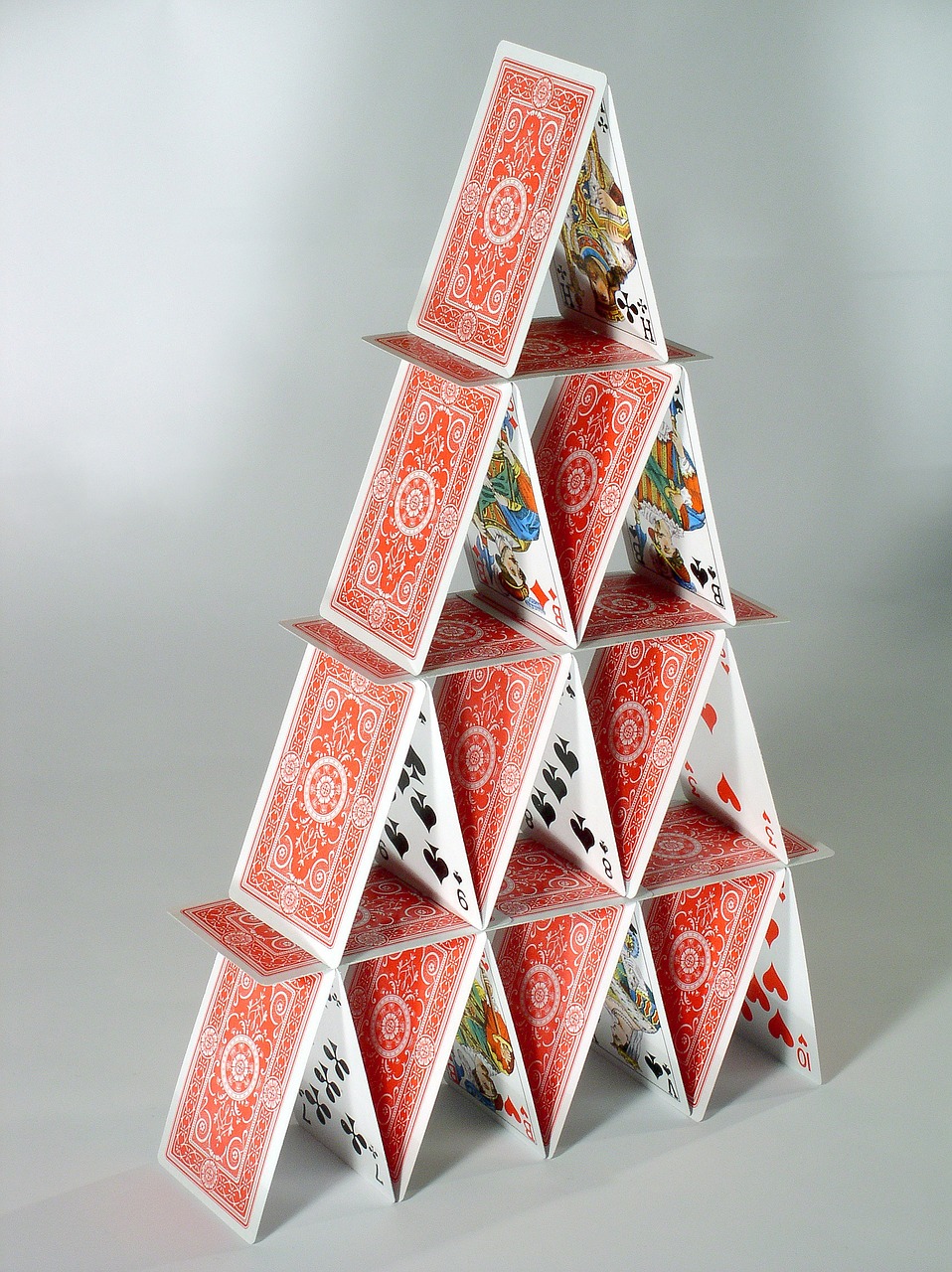Ancestral Eating in the 21st Century
/“If you’re going to eat like a caveman without moving like a caveman, you’re going to have a bad time.”
Whatever you want to call it (the paleo diet, the primal blueprint, the carnivore diet, etc), this conversation around Ancestral Eating fascinates me to no end. It makes sense, after all. We are the product of millions of years of evolution, and the agricultural revolution is only 10,000 years old (look up the Neolithic Revolution). But, I’m pretty sure that our Ancestors didn’t have glyphosate and Wi-Fi to deal with, and probably didn’t even have a word for chair, let alone sit in one 8+ hours a day.
So what’s right? Are we modern man, and need a modern diet for the 21st century? Or, should we go back to our spear throwing days and eat like a caveman (or cavewoman, sexist Omid)?
The Holistic Perspective
We are a complex system of systems networked together by something we still don’t fully understand. That being said, we know a fair bit about the link between food and movement. You know the first law of thermodynamics, right? Energy cannot be created or destroyed in a closed system? Doesn’t ring a bell? How about calories in and calories out? Seems so simple: eat less than you burn via exercise, and magically weight loss.
Well, turns out not all calories are the same. Nor is each individual’s genetics. Nor is the time of day, the position of the moon, the quality of the soil the food came from, etc, etc. Like I said, we are a complex system of systems, and any one of those systems can have a few thousand variables that change the equation. Calories in and Calories out sticks around like a thorn in my side because it fits onto magazine covers and click-bait titles better than the truth; that there is no simple equation that made you or I, that we are completely unique in almost every way from someone else.
So, what does that have to do with ancestral eating? Well, one thing that often is missing from this conversation is so damn simple that it makes my head spin: WHO’s ANCESTORS?
I could write an entire book on this topic, and there are plenty of them out there already, but let’s just simplify this a bit for now. I’m a pure bred Persian, and I’m about to marry my lovely European mixed lady. We face a dramatic challenge due to the fact that my ancestors came from a place where we had access to plants all year long, plus a history of being exposed to grains for much longer than her people. Likewise, in most European countries, the ground freezes during the winter, stopping food sources from plants, leaving her ancestors to follow and eat the roaming animals.
And yes, this definitely leads to some challenges at the dinner table and our plates look different. More on that in a different post. For now, the takeaway is this – just like our fingerprints are unique to us, so are your ancestors to other people’s, and we shouldn’t just eat a standardized paleo diet because Dr So-and-So said to. We need to figure out what our genetic ancestors ate.
But let’s get back to that first law of thermodynamics, shall we? Energy cannot be created or destroyed in a closed system? Well, that’s assuming that we have a constant burn rate like a car: put in a certain number of gallons of gas, and go a certain number of miles based on the miles per gallon of the car. Turns out that if that were the case, we wouldn’t be here. Our ancestors often had to go days on end without food, and even if they did eat every day, consumed their calories within shorter windows of time than we do now. This simply means that we have a variable metabolism, or variable burn rate.
New research (I’ll get into it more down below) is even showing that the same number of calories eaten in a 24 hour window vs an 8 hour window have dramatically different effects on the body. In other words, people would eat the same thing they were eating before and losing weight rather than gaining ON THE SAME DIET. This is the right time for me to say that I’m not a doctor or nutritionist, and experiment safely with any new dietary changes, especially when it comes to anything that mimics a fasting environment.
Ancestral Eating to Me
1) The lowest hanging fruit to me is time restricted eating. While it’s clear that most of our ancestors would have been exposed to multiple days of fasting due to food scarcity, modern man just doesn’t have the need anymore for this. And while I can definitely go into a ton of science of why we should do a 3-5 day fast once in a while, we don’t NEED to, especially when intermittent fasting exists.
Simply eat all of your calories you normally would in a given window of time of 8-12 hours. It turns out that it takes a lot of energy to digest food, and without any breaks, our cells tend to start getting tired and over worked. Eating all the food in a window smaller than 12 hours allows our cells to clean out all the waste left over from cellular metabolism and be more efficient with breaking down new food.
2) This next one is controversial, but eat a LESS varied diet. Our ancestors didn’t have access to refrigerators and super markets. For the most part, they ate what was around them in only a few square mile radius on a daily basis. Just like our bodies adapt to perform exercise more efficiently the more we do it, the more adaptive our digestion system gets to extract the maximum amount of nutrition from a food when exposed to it repeatedly.
*Side note: we do need a small bit of variety in our diets, but this isn’t from a nutritional perspective as much as it is a psychological perspective. YMMV, as I can eat the same dang thing every day with zero care in the world.
3) Know your specific ancestry. Tests like ancestry.com or 23andme.com can help with this greatly. But if funds are limited for tests like that, simply look at the map of the world and chart where your family comes from. It gets tricky if you’re a mutt, but just take the largest percentage and eat the way they did for a month and see how you feel. This is critical information, as our ancestors really only ate what was around them, and not hundreds of miles away.
4) Like I teased with the above quote, our ancestors moved a LOT. We can’t just follow a paleo diet like some kind of panacea of health. We need to move like our ancestors did: move at low (walking intensities) for a lot of the day, never really sitting still for more than 30-60 minutes at a time, and short intense bursts of activity to simulate hunting and/or running from stuff.
5) Lastly, the obvious: avoid processed foods. There is a time to follow the better living by science approach, bio-hacking certain systems in the body for short term gain. But I prefer the phrase: there’s no such thing as a biological free lunch. Eat real food as much as possible, and when you can’t, eat the least processed thing you can.
Before I leave you for the day, I’d like to close with something I already mentioned in this post. There is nothing simple about you or I, and we are all unique complex systems of systems. Stop listening to what people tell you that you should eat, because the truth of the matter is that we have no idea. Once study of centenarians (people who live past 100) showed that they lived long lives despite their health habits (turns out most of them smoked, drank, slept like hell, and ate like shit).
What I suggest is this: that the superpower of the 21st century is awareness. Rather than listening to what people tell you you should eat, learn to be aware of what your cells want. And learning to hear the difference between psychological programming and actual self care. Once you can do that, then eating becomes another form of self expression.
I hope this information was helpful, and as always have a happy and healthy rest of your day!
